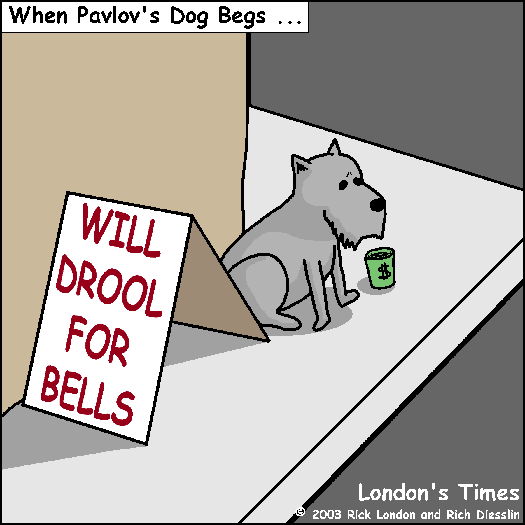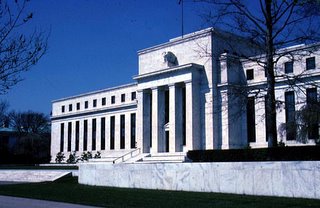 A principled anarchist is one that need not ever make the case that he objects to the necessity of common law, civilized order, 'public' goods or what not.
A principled anarchist is one that need not ever make the case that he objects to the necessity of common law, civilized order, 'public' goods or what not.However a principled anarchist is one who rejects the unholy notion of an objective utilitarian or consequentialist doctrine, as he garbs himself in the robe of deontological ethics -- the consideration that all actions are to be judged on their own moral basis, and are not subject to a 'package deal', where one is permitted to perform actions which if performed on their own would be immoral, but when together they bring to fruition an overall, positive consequence, they are not considered immoral.
A principled anarchist who has some background in a Bastiatic† sense of economics will surely even deny the possibility of there ever being a positive, or even net gain of "good" to speak of when following the utilitarian doctrine, which for its part can never factor in the psychic and opportunity costs of disutility on the part of those who suffer a "well-intentioned" meddler's immoral actions.
Furthermore, an analysis of the goods that political anarchy (read: any government) makes pretense to deliver, whether it's industry regulation, industry standards, roads, common law, retributive and punitive justice, or a monetary and banking system, etc. are all faux goods in the sense that one could do better to obtain, instead of unwillingly exchanging life, liberty and property in pursuit of these couterfeit goods.
 For example, in regard to industry regulation I have wrote in the past that:
For example, in regard to industry regulation I have wrote in the past that:The most valuable asset to an individual or business is their integrity, or good will. This seemingly trifle point is a big deal when the market is unhampered by regulations. As a motivating agent, it is by far the greatest incentive for people and businesses to provide the highest level of service and product. Regulations and punitive damages when instituted by third-parties, are too poor a substitute for the purpose of keeping businesses honest.In other words, true regulation of industry can only come from within the individual firms themselves. The "regulation" we speak of in the governmental sense is but a faux substitute for this ideal of regulation.
A commenter on Catallarchy really drives this distinction of the regulation term home:
One of the confusions that all of this causes is often from terms.In regards to standards, I recently posted to the Mises blog this little rejoinder to a glib fellow calling himself "anti-lib" who argued that without government, we would have no system of enforceable standards, from which I take it that he believes it undesirable for people to make their own choices:As someone who has worked with “electricity", I can tell you that you must always regulate energy. What’s that you say, you are for regulation?
Well, not rules in the way you mean. Unregulated electricity would cause most of the electronics in your house to malfunction. (power surge), so, to a physics major, when you say deregulation, they think you are talking about lightning strikes.
secondly, most folks of an inteligent nature realize that when most folks are speaking of “derugulation” what they really mean is regulation that is more favorable to their own personal interests, not a lack of regulation.
Now, “real” derugulation is nothing of the sort. It’s getting out of the way of the self-regulation free market. Not an absence of regulations, but letting the market set them.
Looking back at Cali dereg, it was nothing of the sort. To this day, I don’t know what that was.
But, I have this (following) example to show me what deregulations actually means to many in this country(but it relates to content transmission rather than pure energy).
Years ago I lived in one of the first towns to have cable TV in IL. Because the market was unregulated, becuase the cable company required right of way on our land (we were a “self-rule” corporation, yes a village, but a self-rule incorporated village), we were able to get an excellnt deal with the company. I had a chance to meet one of the VPs from that company at the time, and I knew from him, they were very happy with the deal. They made profits, we allowed them the rights of way and other assistances that in cases where no deal had been agreed to, possibly been costly from a management perspective.
That is all gone now. Why? Well, you see we were deregulated. Now, we had to except national enforced mandates, rather than negotiate with the company directly. Should there be problems with the service, tough luck charlie. Previously, the free market was still open, and since we had helped build the infrastructure, we could make deal with a different company that would better service our market preferences.
I would much rather go back to that “regulated” state, that had no regulations other than the fact that two incorporated groups of people had agreed on.
So, in that case: Regulated meant contracts between individuals, negotiated without fed interference, while Unregulated meant that the feds would preempt our negotiations.
But what about roads?! No problem.What I think also warrants a mention is that the only true standards are those which are voluntarily agreed upon by the market participants. Anything enacted through force or coercion is tainted with the possibility of being the less than optimal solution.
There are plenty of standards which didn't require the state to intervene. Graphic, motion and audio codecs have standardized baselines which are operable cross industry. For example Sony's DVD discs work on Toshiba set top players.
The lesson you draw from that is that manufacturers will often find it in their interest to market materials to their customers in standardized formats. While its not a rule, it seems the only time "standards" have been ignored is when consumers deem the misnomered 'standard' to be inferior to a non-standard alternative (witness the success of iTunes despite its proprietary lock to the Apple iPod). When success is not the case, the usual culprit will most likely be the results of a government-created monopoly which favors the current proprietary solution.
In any case, there never is an instance when standards should need to be imposed; for if the standard is truly the optimal, it probably will be whole-heartedly supported by market participants. If the standard is less than optimal, you will see the opposite. If coercion is needed to impose the standard, its probably less than optimal, and in all cases exudes elistism on part of the enforcer.
Common Law? Dispute Resolution? Collective Services? Pollution? Big deal! (Thank you Stefan Molyneux)
Justice? Hah!
 Money and Banking?
Money and Banking?I don't think I even have to explain how governments, and in the U.S.'s case, through its Federal Reserve and its cartelized banking system have taken monetary counterfeiting to a entirely new nadir of despotism and fraud.
You will also find that the principled anarchist is one who does not have the conceit to pretentiously guarantee the delivery of these goods in absense of the government. But he is ready to say that whatever is to society's optimal benefit will spontaneously arise in the absense of the state's coercive matrix, and that these goods, unlike the government's faux substitutes are the real deal.
Choose wisely.
† Bastiatic, after Frederic Bastiat, whose words remind us to encompass all the costs of any transaction, not just the visible ones we see before us. This would be in principle the antithesis of a Coasean, Pigouvian, or Kaldor-Hickian analysis which impossibly, yet falsely lumps subjective valuation of costs, into objective societal costs which could be studied to measure for efficiency.







































2 comments:
Iceberg,
is there an email address that I can reach you at ?
lonepanther,
I replied to you via the email address you have set for the contact email on the "lonepanther" website.
Post a Comment